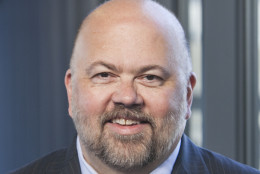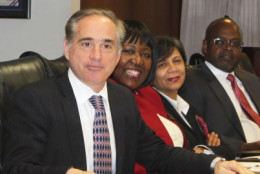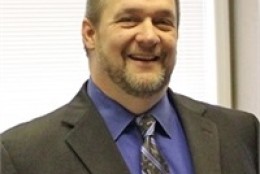Workforce Rights/Governance
-
Federal executives talk a lot about the importance of human capital. The workforce, that is. But not enough of them engage in meaningful workforce planning. That's according to former Homeland Security HR-chief Jeff Neal, now with IFC International. Neal told Federal Drive with Tom Temin that's changing.
November 25, 2015 -
John Shoraka, associate administrator of Government Contracting and Business Development at the U.S. Small Business Administration, talks small business contracting with host Derrick Dortch. November 20, 2015
November 18, 2015 -
Agencies often go into great detail when they identify the skills and competencies they need for their own employees, then do very little to identify what they need when they use contractors to do the work.
November 18, 2015 -
Social media makes it easier than ever to violate the Hatch Act, the law that bans feds from using their positions to influence political campaigns.
November 12, 2015 -
While new laws and programs have focused on patients, employee morale remains low at the Veterans Health Administration. As long as that remains the case, patients will not get the best from the VA's health system, says VA Under Secretary of Health Dr. David Shulkin.
November 11, 2015 -
Civil servants who refuse to answer questions when called to testify before the House of Representatives or the Senate are not exercising civil service protections. They are exercising a constitutional right guaranteed to everyone, says Jeff Neal, senior vice president of ICF International.
November 06, 2015 -
If human resources is so important and HR specialists are a mission critical occupation, why is it so rare to find someone who says they are happy with their HR support?
October 29, 2015 -
A new survey by Silverlight Financial and Federal News Radio found federal employees think they are prepared for retirement, but haven’t had the training or preparation necessary to ensure a successful transition.
October 20, 2015 -
In the Office of Personnel Management's latest report on employment of people with disabilities, the number of federal employees increased between 2013 and 2014 by about 13,200 people.
October 13, 2015 The Department of Homeland Security releases new enforcement guidelines for identification cards when entering federal buildings and military bases.
October 12, 2015-
Cato says the average salary and benefits of the federal workforce, which consists of 2.1 million people, are 78 percent higher than the average salary of 111 million people in the private sector.
October 07, 2015 -
The results of the 2015 Federal Employee Viewpoint Survey scores, released earlier this week, show employee engagement hit a mediocre, governmentwide average of 64 percent, just 1 percent higher than last year. David Dye is a director with Deloitte's Federal Human Capital Services sector. He studies the viewpoint survey year after year, and joins the Federal Drive with Tom Temin with his take on what the latest results mean.
October 02, 2015 -
The good news in the 2015 Federal Employee Viewpoint Survey is that the two most important scores are up 1 percent each over last year. The bad news is last year was the worst year ever in the survey. Bob Tobias , director of Business Development at American University, takes a deeper look at the survey numbers on In Depth with Francis Rose.
October 02, 2015 -
Amateur chefs from 12 federal agencies brought crock pots full of spicy meat and beans to the Energy Department cafeteria Thursday for the 2015 Feds Feed Families Chili Cook-off. The competition helps to raise awareness…
October 01, 2015 -
The Office of Personnel Management released updated furlough guidance. The update includes 15 new additions and revisions for agencies and federal employees and what to do in case of a government shutdown.
September 30, 2015











